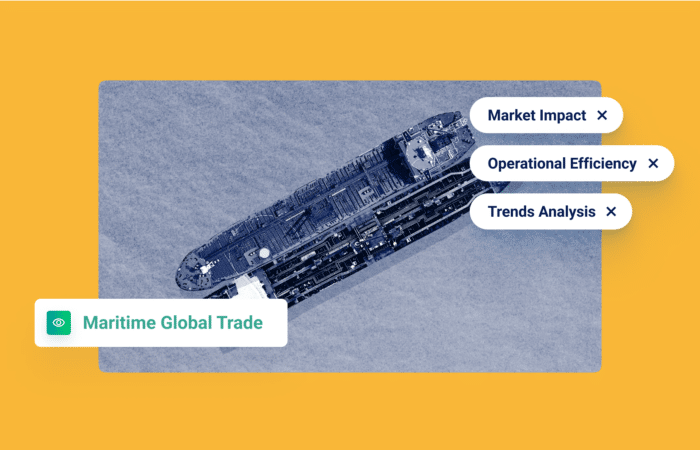COP27’s Green Shipping Challenge: Act Now, Maritime Orgs!

What’s inside?
There were some major maritime announcements at the 2022 United Nations Climate Change Conference (“COP27”), which Windward was attending this week.
It’s not a secret that approximately 90% of the world’s trade is transported by sea and that ships produce around 3% of all greenhouse gas emissions. Compared with country emissions, the sector would rank among the top 10 largest emitters globally.
Many governmental bodies and organizations throughout the maritime ecosystem are committed to reducing that second number, greenhouse gas emission, as evidenced by the headlines coming out of COP27. But as always, the devil is in the details. The true test will come when it’s time to get actionable and overcome obstacles, collaborate, and execute on large-scale, complex projects (against the backdrop of a potential global recession).
The U.S. and Norway launched the Green Shipping Challenge at COP27. The U.S. Department of State explains:
“The Challenge encouraged governments, ports, and companies to prepare commitments to spur the transition to green shipping…Countries, ports, and companies made more than 40 major announcements on issues such as innovations for ships, expansion in low- or zero-emission fuels, and policies to help promote the uptake of next-generation vessels.”
One of the bigger announcements was around the Green Shipping Corridor Task Force. The UK will join forces with the U.S., Norway and the Netherlands to roll out end-to-end, decarbonized shipping routes.
The force will be focused on bringing together experts in the sector, encouraging vital research and development, and catalyzing other projects to see these initiatives eventually come to life. Transport Secretary Mark Harper said: “…we must not lose momentum. I’m delighted to say the UK has agreed to begin developing green shipping routes with some of our closest allies, as we work together to realise the ambitions of the Paris Agreement and limit global warming.”
Big initiatives are great, but there are 2 considerations…
The initiatives launched at COP27 demonstrate a serious commitment on the part of world leaders, government agencies and bodies, and private organizations throughout the maritime ecosystem. Windward is excited to keep partnering to help advance these lofty goals however we can. There are two things to consider, however.
The first consideration is timing and urgency. Unfortunately, decarbonized shipping routes, zero emission fuels and next-generation vessels will take time to achieve wide-spread adoption. A McKinsey report from 2021 notes:
“Zero-emission fuels and vessels will need to start being deployed at scale over the next decade to achieve full decarbonization of the shipping sector by 2050.”
Worthy long-term goals are important, so that stakeholders can strategize and plan ahead, but the urgency of global warming demands faster fixes, too.
The second consideration is that many green maritime initiatives require an ability to accurately measure vessels’ fuel consumption, and today noon reports are still widely used. Since this is a manual process, it can often be inaccurate, inconsistent, and prone to human errors or potential falsification. When owners lack visibility, they cannot spot potential discrepancies between reported and actual fuel consumption.
Windward’s launch of our Vessel Fuel Consumption API, a differentiated AI solution providing fuel consumption assessments with up to 95% accuracy on average per voyage, helps satisfy both considerations.
It offers an independent way to track and calculate fuel consumption of any tanker across the globe in a more reliable and consistent manner, without the use of additional devices. This provides stakeholders, including charterers, shipowners, energy companies, and financial institutions, with total fuel consumption visibility for the main engines, auxiliary engines and boilers of all tankers.
Having a reliable source of truth for fuel consumption is the initial step in the maritime industry’s journey toward decarbonization, until longer-term measures can take effect. The more visibility stakeholders have, the more they can control fuel consumption and carbon emissions. This visibility will empower them to charter the most efficient vessels and jettison the inefficient ones, negotiate better time charter equivalent (TCE) rates, and optimize sailing routes and times. The less fuel that is consumed, the less carbon that will be emitted. This way, stakeholders can ensure they are moving toward a more sustainable future.












